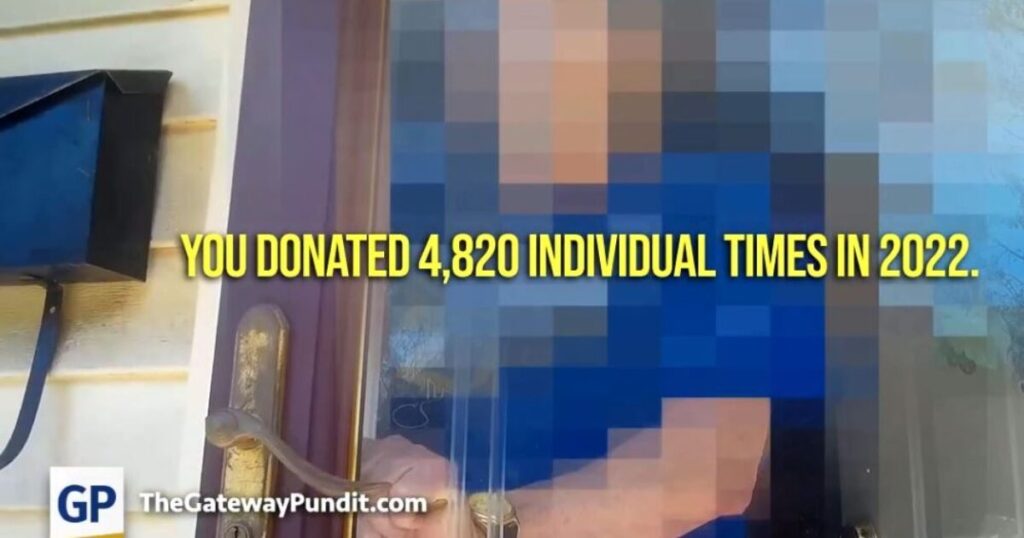Texas Attorney General Ken Paxton has initiated a significant effort to investigate the online fundraising platform ActBlue, formally referring a criminal inquiry to the U.S. Department of Justice (DOJ). The investigation stems from allegations of illicit campaign contributions involving straw donations, which are defined as campaign contributions made through false identities and untraceable payment methods. Paxton asserts that these activities aim to manipulate American electoral processes illegally. The probe started in December 2023 when concerns emerged regarding ActBlue’s potential facilitation of such campaign finance violations. To address these issues, ActBlue reportedly introduced a measure requiring credit card CVV codes for donations in August 2024, although Paxton contends that this safeguard has failed to deter ongoing abuses.
The gravity of the situation has prompted Attorney General Paxton to petition the Federal Election Commission (FEC) to address apparent regulatory gaps that may allow for continued exploitation of campaign finance laws. He highlights a troubling volume of suspicious donations, many made under obscured identities. Paxton emphasizes that foreign contributions and donations exceeding legal limits may be funneled unlawfully through political campaigns, thereby jeopardizing the integrity of the electoral system. He calls for immediate regulatory reforms to close these loopholes and secure elections from potential criminal activities. In a letter to the DOJ, he outlines the specific findings of his investigation, detailing how anonymous actors systematically make contributions through ActBlue in the names of others, raising significant legal concerns related to wire fraud, identity theft, and illegal contributions.
Alongside Paxton, other state officials have also begun investigations into ActBlue. Virginia Attorney General Jason Miyares, for instance, is scrutinizing ActBlue’s operations in light of serious allegations surrounding fraudulent and deceptive activities. Miyares has noted implausible donation patterns from individual contributors, particularly highlighting that many of these donors are senior citizens with suspicious backgrounds. Some donors have reportedly made multiple daily contributions, which raises questions about their legitimacy. The Virginia Attorney General emphasizes that citizens deserve transparency regarding how nonprofits and political entities raise funds and assures that he will seek accountability from ActBlue.
Miayres’ investigation includes a thorough request for ActBlue to disclose its processes for verifying the identity of donors and the accuracy of reported contributions. The expectation is for a detailed response, which could shed light on whether the platform’s operational procedures adequately protect against fraudulent activity. This investigation aligns with similar inquiries from Missouri and Wyoming, where state officials have also raised concerns about ActBlue’s fundraising practices. Notably, the collective scrutiny from these states underscores a broader suspicion regarding the integrity of campaign finance via online platforms.
The broader context is bolstered by previous reports outlining a substantial number of so-called “Campaign Finance Mules” who have engaged in astoundingly high levels of donations on behalf of various candidates. This term was popularized by Chris Gleason, who highlighted the existence of individuals making numerous contributions that appear both implausible and potentially coordinated. Such findings contribute to the overall concern regarding the effectiveness of existing campaign finance regulations, particularly in the face of technology-enabled fundraising platforms like ActBlue.
As investigations continue across multiple states, the implications for ActBlue and online fundraising more broadly are profound. The outcomes of these inquiries may catalyze significant changes in how contributions are verified and reported, as well as how online fundraising platforms operate within the existing legal framework. With mounting pressure from various angles, the future of campaign finance regulatory practices is increasingly uncertain, emphasizing the need for vigilant oversight to uphold the integrity of elections. Should these investigations yield substantial findings of malfeasance, the repercussions could resonate widely, potentially leading to legislative action to strengthen oversight in campaign financing practices nationwide.

